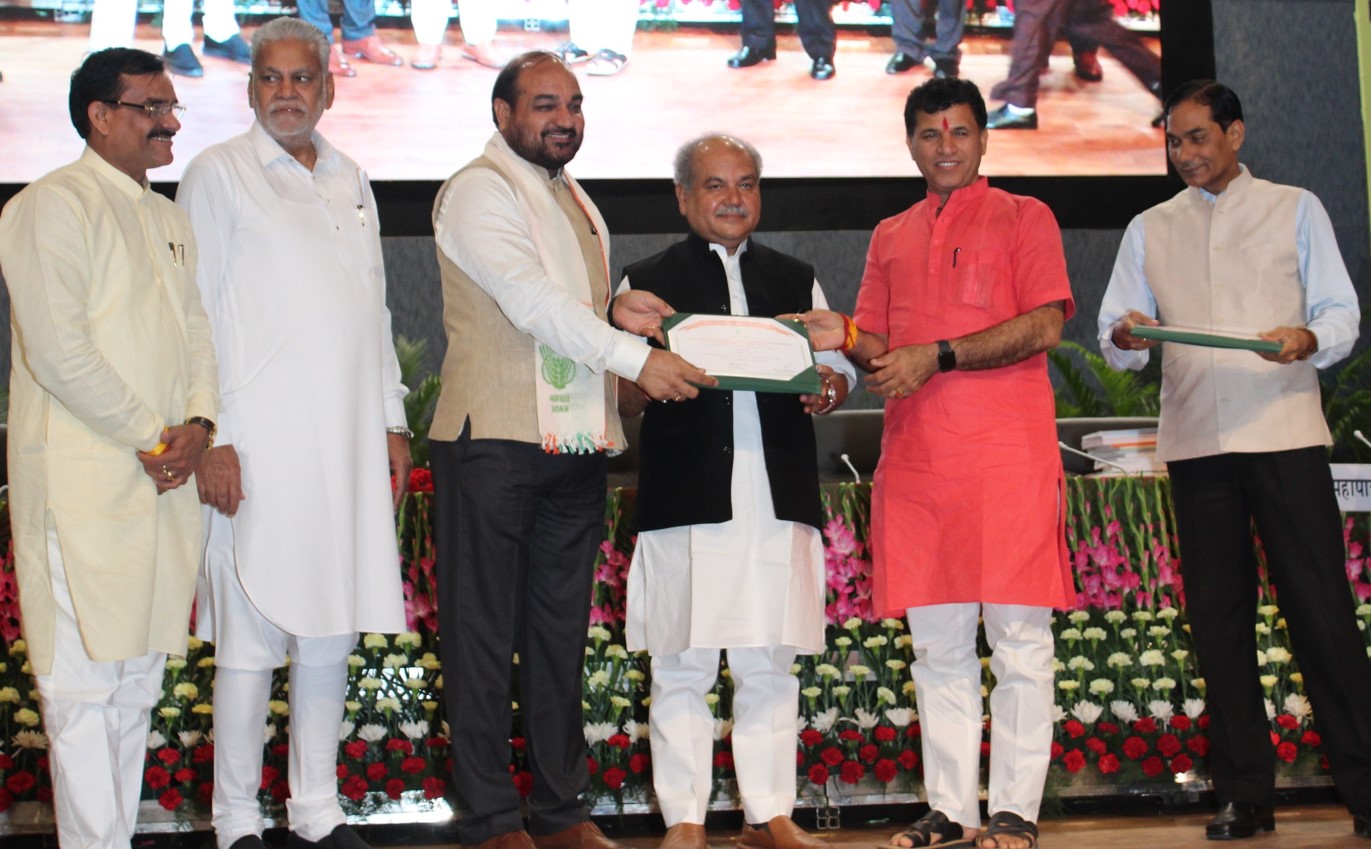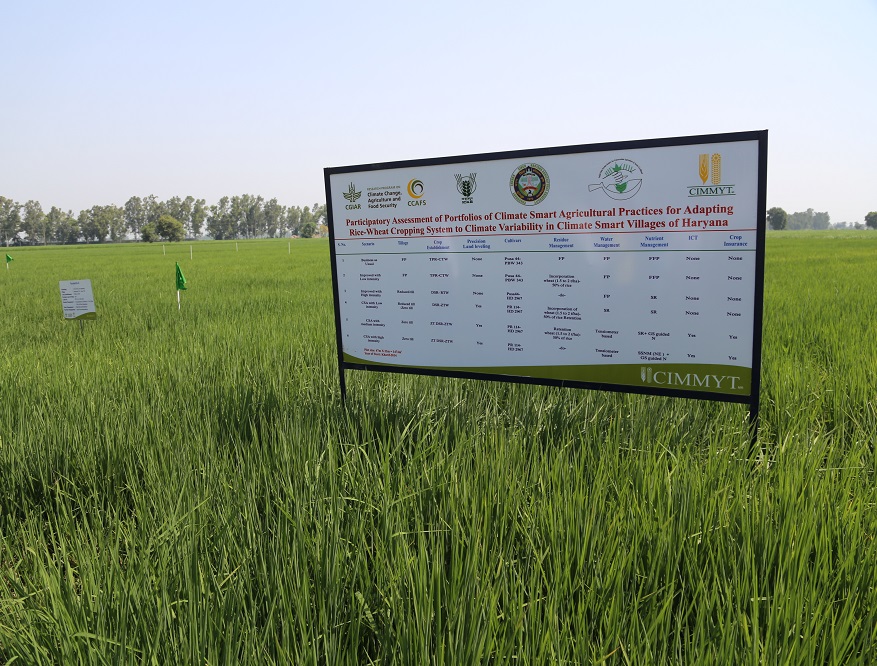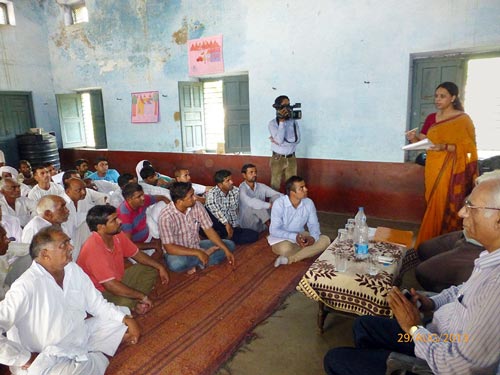
The Indian Council of Agricultural Research (ICAR) honored a cropping systems agronomist from the International Maize and Wheat Improvement Center (CIMMYT) with its prestigious Rafi Ahmed Kidwai Award for outstanding and impact-oriented research contributions in natural resource management and agricultural engineering.
M.L. Jat, a native of India and a CIMMYT principal scientist, received the award from Narender Singh Tomar, India’s Union Minister of Agriculture, in New Delhi, as part of ceremonies celebrating ICAR’s 91st Foundation Day on July 16.
The award is given every other year to Indian scientists engaged in research relevant for Indian agriculture. It includes a cash prize of half a million Rupees, about $7,250.
Dedication and achievement making a difference
Jat has worked for more than two decades to benefit farmers and the environment in South Asia’s vast rice-wheat farm belt through the study and promotion of conservation agriculture and better natural resource management practices. These have included reduced or zero-tillage, keeping crop residues on the soil instead of burning or removing them, more precise fertilizer and water use, scale-appropriate mechanization, and the intelligent diversification of crops.
“I’m extremely honored and grateful for this recognition,” said Jat. “With a rising population of 1.6 billion people, South Asia hosts 40% of the world’s poor and malnourished on just 2.4% of its land. Better practices can help farmers adapt to the warmer winters and extreme, erratic weather events such as droughts and floods, which are having a terrible impact.”
The science of Jat and his associates aims to boost the efficiency of use of water, nutrients, and energy, while improving soil health, raising farmers’ profits, and reducing agriculture’s environmental footprint.
Among other contributions, Jat’s efforts have fostered the adoption of precision land levelling for better irrigation and conservation agriculture practices on more than 6 million hectares in India. Research and policy advice by Jat and colleagues helped foster a recent shift in national policy to avoid rice residue burning and mitigate the region’s severe seasonal smog.
Evidence from studies of Jat and co-workers suggests that India could cut nearly 18% of its agricultural greenhouse gas emissions through sustainable and cost-saving farming practices, while helping to achieve the Sustainable Development Goals of reducing poverty and hunger.
Jat has authored or co-authored more than 100 peer-reviewed, widely-cited articles in high impact journals. One recent innovation studied and promoted by Jat and partners involves precision delivery of fertilizer through sub-soil drip irrigation.
“Climate change has complex and local impacts, requiring scalable solutions likewise to be locally-adapted,” explained Jat, who in 2016 received India’s National Academy of Agricultural Sciences fellowship in Natural Resource Management and has been at the forefront of training farmers and young researchers in conservation agriculture and climate-smart practices.
ICAR Foundation Day draws large attendance
The ICAR ceremonies were attended by more than 1,500 stakeholders, including representatives of CGIAR centers and other international agencies; Shri Kailash Choudhary and Shri Purshottam Rupala, Ministers of State for Agriculture and Farmer Welfare; Trilochan Mohapatra, Director General of ICAR and Secretary of India’s Department of Agricultural Research and Education (DARE); along with vice chancellors of state agriculture universities and other senior officers of ICAR, the Ministry of Agriculture, and state governments.
A long-time partner and funder of CIMMYT and one of the world’s largest national agricultural research systems, ICAR is an autonomous organization under DARE in India’s Ministry of Agriculture and Farmers Welfare that encompasses more than 100 institutes and 70 agricultural universities spread across the country.

 Climate adaptation and mitigation
Climate adaptation and mitigation 
